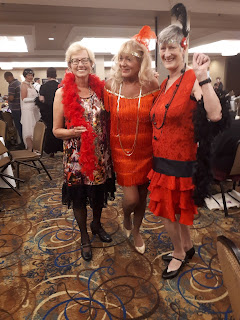Click here to find my books at Books We Love
The characters in my books always have problems and, as is the nature of romantic fiction, they always overcome them...eventually! Their problems are varied and, because I've written quite a few books now, there are many of them. Often the book description will point the reader towards what to expect and the beginning of the blurb in Saving Katy Gray is a good example of this.
Katy was used to losing things. First she'd lost her childhood home, then her career and reputation, and finally, and most dreadfully, her identity, so she knew she should be used to it....
Katy has more problems to overcome than most of my characters but, eventually, she finds a way, as do the characters in books 1 and 2 of the trilogy. What had never occurred to me until recently, however, is that when characters find a solution to their problems this can often help the reader. It was my daughter who prompted this thought with two books she has recently read.
In the past 2 years she and her family have lost a loved one following a long illness, coped with the resultant mental health issues, helped a friend who was in an abusive relationship and then, finally, had to completely reorganise their lives due to the demands of Coronavirus. This has included children being upset about having to miss important exams, training programmes being cancelled, reduced income and, to top it all, my daughter having to leave home and family every day and put herself at risk as a frontline worker. Yet, despite all of these drawn out problems she has remained unbelievably resilient while all the issues she has been dealing with have slowly resolved themselves, and we are so proud of her.
That is not the issue, however. We know that many, many people face similar and even worse problems, but what we don't know is how often they read about themselves in a work of fiction. Entirely serendipitously my daughter, looking for some escapism from her stressful life, recently picked up two novels entirely at random. Unknown to her one was about an abusive relationship and how the heroine began to recognise and then deal with her problems, while the second was about the loss of a loved one and how the resultant grief was played out across 3 generations. When she started reading she had no idea that the stories were about the issues that had affected her own family but the more she read, the more everything resonated. By the end she had not only totally identified with all the characters, she also felt much better about herself, how she had handled things, and perhaps even more importantly, why other family members and friends had acted as they did.
It made me wonder if fictional characters sometimes help readers to resolve their own problems more effectively than non-fiction help books. There is, of course, an important place for these, but when someone is dealing with trauma they often don't have the emotional energy to read the factual stuff and instead turn to the escapism of fiction. This thought has made me look again at the dilemmas my various characters have faced and solved in order to check that I dealt with them realistically. I do, of course, like all writers, always do my research, but the moment of serendipity (or fate) experienced by my daughter, has made me realise anew how very important this is. We writers have a responsibility towards our readers. It goes without saying that they want us to entertain, to make them want to keep the pages turning, even perhaps to teach them something new, but now I've added 'help them to resolve their problems' to the list of things I must think about before I start a new story. The responsibility is really quite daunting!

















